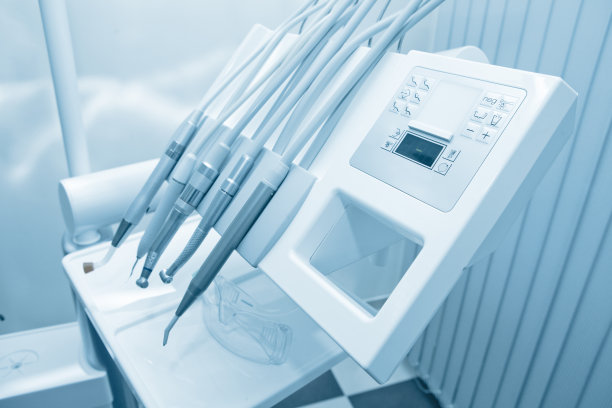Summary: Undergoing root canal treatment can be a daunting experience for many patients, but understanding essential precautions can greatly enhance the chances of a successful recovery. This article outlines four vital aspects to consider before the procedure: thorough consultation with your dentist, understanding the recovery timeline, maintaining oral hygiene, and knowing pain management strategies. By following these precautions, patients can not only ease their anxiety but also promote better healing and minimize complications during the recovery phase. Each section elaborates on these points to give you a comprehensive understanding of the preparation required for a successful outcome.
1. Consultation with Your Dentist is Crucial

Before undergoing root canal treatment, it is essential to have a detailed consultation with your dentist. This meeting allows you to discuss your symptoms, medical history, and any concerns you may have about the procedure. Engaging openly with your dentist ensures that you receive personalized care tailored to your specific needs.
During the consultation, inquire about the procedure itself, including the steps involved and the anesthesia options available. Understanding what will happen can alleviate anxiety and prepare you mentally for the treatment. Moreover, don’t hesitate to ask about the dentists experience and success rates in performing root canals, as this can assure you of their competency.
Finally, make sure to discuss any medications you are taking or allergies you might have. The dentist can then recommend the best plan of action and make necessary adjustments to ensure your safety during the procedure.
2. Understanding the Recovery Timeline
Post-treatment recovery is a critical aspect of root canal therapy. Familiarizing yourself with the recovery timeline can help set realistic expectations. Most patients report some discomfort for a few days after the procedure, which is generally manageable with prescribed pain relief medications.
During the following days, its common to experience sensitivity, but this usually diminishes as healing progresses. Be aware that complete healing can take several weeks, depending on the extent of the procedure and your body’s response. Planning follow-up appointments for check-ups can ensure that everything is healing correctly.
In addition, avoid any strenuous activities for at least 48 hours post-treatment. Elevating your head while sleeping and using ice packs can also aid in reducing swelling and discomfort, making your recovery smoother.
3. Maintaining Proper Oral Hygiene Practices
Maintaining proper oral hygiene before and after root canal treatment plays a significant role in successful recovery. Before the procedure, practice regular brushing and flossing to minimize the risk of infection. It’s beneficial to avoid food and drinks that can stain your teeth or irritate sensitive areas.
After treatment, follow the dentists aftercare instructions diligently. Most likely, youll be advised to avoid certain foods that are hard or chewy. Gentle brushing around the treatment area is essential to prevent irritation, but do avoid vigorous rinsing or spitting immediately after the procedure to protect the treatment site.
Additionally, consider using an antibacterial mouthwash to reduce the bacterial load in your mouth. This extra step can help accelerate healing and prevent complications like infections. Always consult your dentist for recommendations tailored to your healing process.
4. Understanding Pain Management Solutions
Pain management is a common concern for patients undergoing root canal treatment. Understanding the pain management strategies can alleviate anxiety and increase your comfort during recovery. Initially, over-the-counter pain relievers, NSAIDs, or medications prescribed by your dentist are effective in managing discomfort.
Its also essential to communicate with your dentist regarding your pain levels after the procedure. If you experience unmanageable pain or prolonged discomfort, seek professional advice as this could indicate a complication requiring immediate attention.
Furthermore, employing complementary strategies like warm compresses or relaxation techniques such as deep breathing and meditation can be beneficial. These methods can help create a positive mindset, aiding the healing process in addition to the physical pain relief.
Summary:
In conclusion, success in root canal treatment stems from careful preparation and awareness of the recovery process. A thorough consultation with your dentist, understanding the recovery timeline, maintaining proper oral hygiene, and utilizing effective pain management strategies are essential for a smooth recovery. By prioritizing these precautions, patients can enhance their recovery experience and minimize potential complications.
This article is compiled by Vickong Dental and the content is for reference only.
Vickong Dental
Vickong Dental is a large medical group established in Hong Kong in 2008 by professors from well-known medical universities in Guangdong and Hong Kong, as well as medical doctors from key national '985' universities (including Master's supervisors and senior professors). The chain of branches brings together expert dentists with PhDs and Master's degrees from Hong Kong and Mainland China, committed to providing high-quality dental treatment.
"Vickong Dental Practices the University Motto of 'Healing and Serving Society,' with a Stable Operation for Sixteen Years. It Has Been honored with Hong Kong Enterprise Leaders's Choice,' and is a Global Trusted Implant Center for the Nobel Implant System. Recommended by Hong Kong Metro Broadcast and Guangdong Television, it Serves Customers from Over Thirty Countries and Regions, Gaining the Trust and Favor of Citizens from the Guangdong-Hong Kong-Macau Greater Bay Area and Surrounding Cities.

Thousands of customers' unanimous praise
The most recognized and highly recommended dental service by customers in the Guangdong-Hong Kong-Macau Greater Bay Area
We Ensure You Receive Detailed Care and Attention Here
Hong Kong standards, Shenzhen prices, Your Trusted English-speaking dentists

Vickong Dental Medical-Grade Instrument Disinfection Process
Vickong Dental Medical-Grade Instrument Disinfection Process

Vickong Dental Chain: A Warm and Comfortable Environment for Treatment






Appointment Hours

Q&A
Why choose Vickong Dental?
Vickong Dental practices the university motto 「Medicine to Benefit Society」, with each branch bringing together highly qualified dentists with doctoral and master’s degrees from Hong Kong and the Mainland, and has maintained seventeen years of steady operation。Recipient of 「2024 Hong Kong Enterprise Leaders Brand」, 「2025 Hong Kong Enterprise Leaders Brand」, a Nobel Biocare Global Trusted Implant Center, and a brand recommended by Metro Radio Hong Kong and Guangdong TV。
To date, we have served customers from more than thirty countries and regions,earning exceptionally high word-of-mouth recognition and trusted recommendations from residents across the Guangdong-Hong Kong-Macao Greater Bay Area and surrounding cities
We have eight major branches in Zhuhai、Shenzhen,and a consultation and service assurance center in Hong Kong,so you can book a free consultation at any time for any questions,which is very reassuring.
If I do not accept the quotation after the CT scan, will I be charged??
No! As long as the actual treatment has not started, you will not be charged any fees.
Will there be any additional charges during the treatment process?
No, there won’t be any additional charges. Before treatment begins, we will clearly explain the treatment plan and its corresponding fees. Only after the patient agrees and signs the consent form will we proceed with the dental service.
Can I pay in Hong Kong dollars?
Yes. Vickong Dental accepts payment in Hong Kong dollars. The amount will be converted based on the exchange rate of the day, and the applicable rate will be clearly communicated to you in advance.
Can I reschedule my appointment at any time?
Yes. Please contact us via **WeChat** or **WhatsApp** as early as possible, providing your original appointment time and details, along with your preferred new date and time slot for rescheduling.













